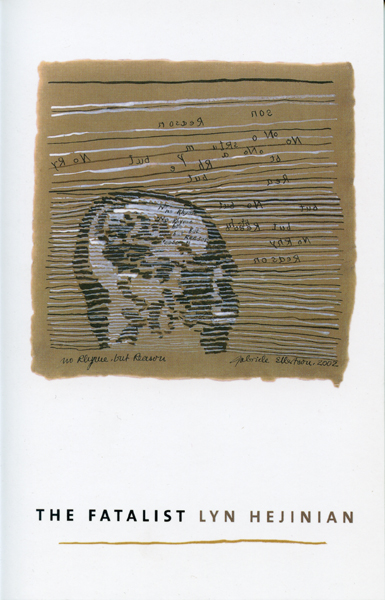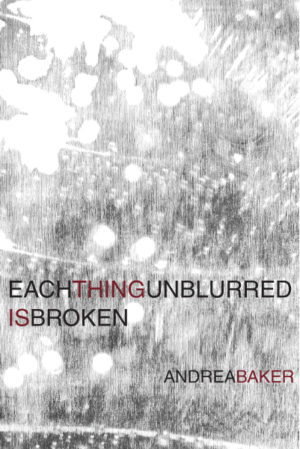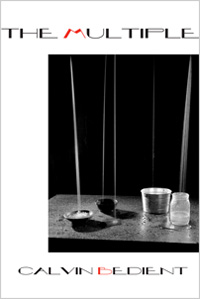Description
In The Fatalist—a book length, syntactically demanding, semantically invigorating poem divided into many sections—ideas accrue in a complex of meaningful address, which might include daily intimacies, popular culture’s banalities, and references to illustrious writers and thinkers of the past and their systems of philosophical inquiry. In direct comment, and in the more subtle effect upon the reader of these surprising juxtapositions, Hejinian offers canny, humorous reflection upon our species’ endless attempts to transmit insight regarding our situation as sentient beings. While a more typical means of discursive flow is disrupted, the reader is addressed intimately, directly, and repeatedly in this ensemble of eclectic parts, which turn emotive, descriptive, imagistic, analytic, ironic, in phrase upon phrase, sentence upon sentence. Hejinian both spotlights and subverts the language functions of her phrasings with a (seemingly) casual dexterity. Such attention not only exposes to us the limits that our language structures place upon what is allowable and express-able in speech, but also engenders an even greater affinity and rapport between writer and reader than would a less subversive syntactic flow. From The Fatalist a reader can gain not only a greater appreciation, but also an enlivened enthusiasm for the endlessly re-definable activity that is human address regarding the human condition.
“That’s what fate is: whatever’s happened,” writes Lyn Hejinian at the end of her breathtaking long poem, The Fatalist. In this sense we are all fatalists, since “whatever” has happened to us all, and we all recognize it when we see it. Yet it has seldom been more sumptuously tallied, tabulated and illuminated.
John Ashbery
In The Fatalist Lyn Hejinian continues her distinctive charting of the connections between her life, her reading, and her thinking that was begun in My Life and that fantastically metamorphosed into A Border Comedy. Poems move from how apples fall heavily on the ground and lie in the sun to discussions of the 17th century autobiography and the “lyric moment.” Hejinian’s work often demonstrates how poetry is a way of thinking, a way of encountering and constructing the world, one endless utopian moment even as it is full of failures. The Fatalist is one more wonderful explanation.
Juliana Spahr
About the Author
Reviews
Excerpt
Lyn Hejinian is a poet, essayist, and translator. Her groundbreaking book of poetry, My Life, published by Sun & Moon / Green Integer, has had five re-printings from 1980-2002. Her most recent books include A Border Comedy (Granary Books, 2001), Slowly and The Beginner (both published by Tuumba Press, 2002), and The Fatalist (Omnidawn, 2003). The University of California Press published a collection of her essays entitled The Language of Inquiry in 2000. In the spring of 2007, she was elected a Chancellor of the Academy of American Poets. She teaches in the English Department at the University of California, Berkeley.
Transparent, absorptive narratives create an illusion – an illusion often accepted as a truth – that there is a logical sequence of events. In The Fatalist, Hejinian is deeply concerned with revealing this illusion for what it is. Real experience is not narrative. Rather we use narrative to communicate experience.
So, you stop looking for the big q.e.d. of The Fatalist, although, like the poem itself, you don’t stop thinking and realizing that the poem urges you to an insistent, estranged yet familiar subjectivity more or less parallel, and occasionally intersecting with, the speaker’s own. But more than parallel because the “you” in the poem which, if you look closely, is someone else—the beloved—and at times feels like yourself: she is talking to me!–and I wish to respond.
Throughout Lyn Hejinian’s latest long poem, The Fatalist, language becomes the conduit for discovery of a presence–differentiated yet ever evolving–in a plurality of similar presences (similar, that is, in that they are different: “experience / doesn’t reveal one’s own reality but the reality of things / alien to one”).
Lyn Hejinian’s The Fatalist challenges the reader to experience a view of reality “bound to whatever comes / to one’s consciousness” knowing that “intuition is a form of obedience.” She takes us on a ride during which seemingly unrelated things pop out in close proximity to one another, yet their particularity does not feel haphazard. The experience is one of traveling a great distance without going anywhere.
Everything that works does so in time and testifies
to time’s inability to stop life. I can make the “pathetic leap” and go
from one moment to another that bears
no emotional relationship to it, obscured
by shadows cast by light one can lend oneself to
in the cozy enclosure provided by surroundings produced again
and again by the rain, the one
that you both very generously came to one
evening laughing and shouting “Whoa!” while I was writing
this letter. There were three women and a man, all markedly given
to eagerness, the three women admirably composed, gripping
the monitor. It didn’t last, at least not long ago. Now
in the pleasure of knowing that distracted restlessness
— their composition an arena for enthusiasms that remain
seemingly irrelevant to their apparent undertakings —
there are too many options, dithered and frittered
away buying groceries in which a lot (and I mean, really
a lot) of money gets spent on travel. Still
it might bring one past glaciers and through the inland passage
in the end. But for now I have the score.
I can’t put some poor woman on a stage
and ask her to sing “wallowing in a state of chaos
that remains closed to me.” To be an anachronism is nothing
more than to be chronologically out of place.




